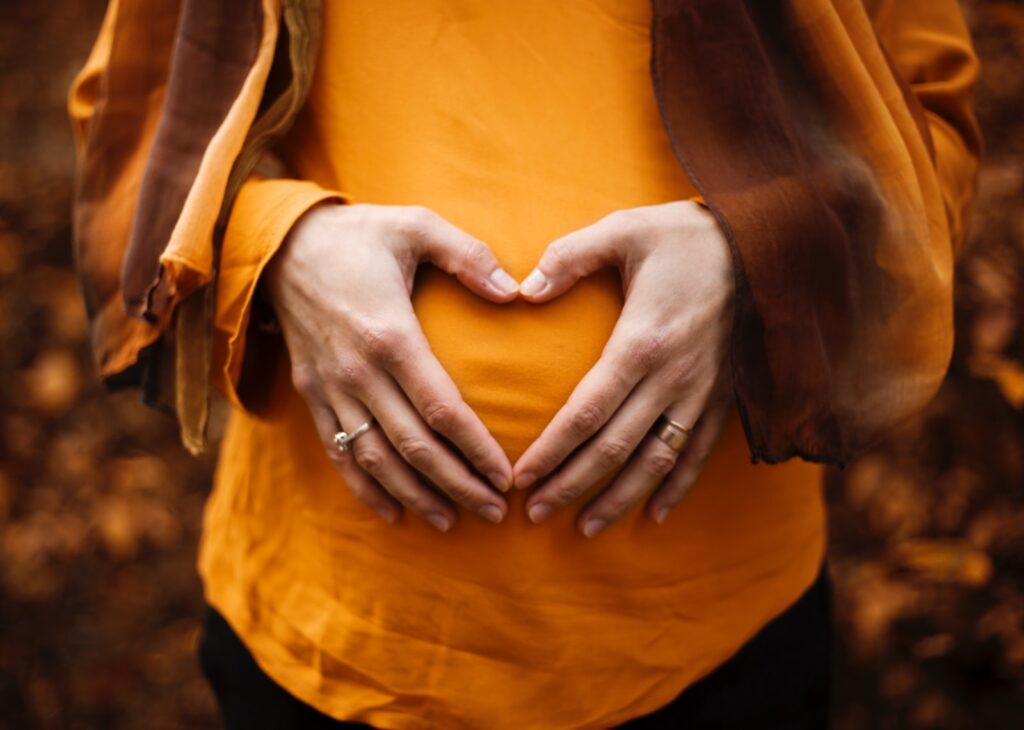Some women have high blood pressure during pregnancy. This can put the mother and her baby at risk for problems during the pregnancy. High blood pressure can also cause problems during and after delivery. The good news is that high blood pressure is preventable and treatable.
High blood pressure, also called hypertension, is very common. In India, high blood pressure happens in 1 in every 12 to 17 pregnancies among women ages 20 to 44.
High blood pressure in pregnancy has become more common. However, with good blood pressure control, you and your baby are more likely to stay healthy.
The most important thing to do is talk with your health care team about any blood pressure problems so you can get the right treatment and control your blood pressure—before you get pregnant. Getting treatment for high blood pressure is important before, during, and after pregnancy.
What are high blood pressure complications during pregnancy?
Complications from high blood pressure for the mother and infant can include the following:
- For the mother: preeclampsia, eclampsia, stroke, the need for labor induction (giving medicine to start labor to give birth), and placental abruption (the placenta separating from the wall of the uterus).
- For the baby: preterm delivery (birth that happens before 37 weeks of pregnancy) and low birth weight (when a baby is born weighing less than 5 pounds, 8 ounces). The mother’s high blood pressure makes it more difficult for the baby to get enough oxygen and nutrients to grow, so the mother may have to deliver the baby early.
What should I do if I have high blood pressure before, during, or after pregnancy?
Before Pregnancy
- Make a plan for pregnancy and talk with your doctor or health care team about the following:
- Any health problems you have or had and any medicines you are taking. If you are planning to become pregnant, talk to your doctor. Your doctor or health care team can help you find medicines that are safe to take during pregnancy.
- Ways to keep a healthy weight through healthy eating and regular physical activity.
During Pregnancy
- Get early and regular prenatal care. Go to every appointment with your doctor or health care professional.
- Talk to your doctor about any medicines you take and which ones are safe. Do not stop or start taking any type of medicine, including over-the-counter medicines, without first talking with your doctor.
- Keep track of your blood pressure at home with a home blood pressure monitor. Contact your doctor if your blood pressure is higher than usual or if you have symptoms of preeclampsia. Talk to your doctor or insurance company about getting a home monitor.
- Continue to choose healthy foods and keep a healthy weight.
After Pregnancy
- Pay attention to how you feel after you give birth. If you had high blood pressure during pregnancy, you have a higher risk for stroke and other problems after delivery. Tell your doctor right away if you have symptoms of preeclampsia after delivery. You might need emergency medical care.
What are types of high blood pressure conditions before, during, and after pregnancy?
Your doctor or nurse should look for these conditions before, during, and after pregnancy:1,11
Chronic Hypertension
Chronic hypertension means having high blood pressure* before you get pregnant or before 20 weeks of pregnancy.1 Women who have chronic hypertension can also get preeclampsia in the second or third trimester of pregnancy.1
Gestational Hypertension
This condition happens when you only have high blood pressure* during pregnancy and do not have protein in your urine or other heart or kidney problems. It is typically diagnosed after 20 weeks of pregnancy or close to delivery. Gestational hypertension usually goes away after you give birth. However, some women with gestational hypertension have a higher risk of developing chronic hypertension in the future.1,12
Preeclampsia/Eclampsia
Preeclampsia happens when a woman who previously had normal blood pressure suddenly develops high blood pressure* and protein in her urine or other problems after 20 weeks of pregnancy. Women who have chronic hypertension can also get preeclampsia.
Preeclampsia happens in about 1 in 25 pregnancies in India. Some women with preeclampsia can develop seizures. This is called eclampsia, which is a medical emergency.
Symptoms of preeclampsia include:
- A headache that will not go away
- Changes in vision, including blurry vision, seeing spots, or having changes in eyesight
- Pain in the upper stomach area
- Nausea or vomiting
- Swelling of the face or hands
- Sudden weight gain
- Trouble breathing
Some women have no symptoms of preeclampsia, which is why it is important to visit your health care team regularly, especially during pregnancy.
You are more at risk for preeclampsia if:
- This is the first time you have given birth.
- You had preeclampsia during a previous pregnancy.
- You have chronic (long-term) high blood pressure, chronic kidney disease, or both.
- You have a history of thrombophilia (a condition that increases risk of blood clots).
- You are pregnant with multiple babies (such as twins or triplets).
- You became pregnant using in vitro fertilization.
- You have a family history of preeclampsia.
- You have type 1 or type 2 diabetes.
- You have obesity.
- You have lupus (an autoimmune disease).
- You are older than 40.
In rare cases, preeclampsia can happen after you have given birth. This is a serious medical condition known as postpartum preeclampsia. It can happen in women without any history of preeclampsia during pregnancy. The symptoms for postpartum preeclampsia are similar to the symptoms of preeclampsia. Postpartum preeclampsia is typically diagnosed within 48 hours after delivery but can happen up to 6 weeks later.9
Tell your health care provider right away if you have symptoms of postpartum preeclampsia. You might need emergency medical care.

Dr. Mamta Pattnayak is working as a Additional Director in Gynae and Obstetrics Dept. in Fortis Hospital, Gurgaon. Dr. Mamta Pattnayak is an MBBS graduate from S.C.B. Medical College, Cuttack and completed her MD (Obstetrics & Gynaecology) from Sambalpur University in 2003. With a rich experience of over years to her credit, Dr. Mamta has undergone training on advance lap Gynae by Ethicon. Done hand’s on Colposcopy course by RCOG. She is certified as a mentor in RCOG training course in Max Hospital Saket. Dr. Mamta has been associated with several organizations like Moolchand Hospital, New Delhi besides others. Her last assignment was at Max Super Specialty Hospital, Saket, New Delhi. Recently she has also started her private clinic at: Mother’s Touch HealthCare Centre: 395P, Sector 39 Rd, opposite to Medanta Hospital, near Gurudwara, Sector 39, Gurugram, Haryana 122004

